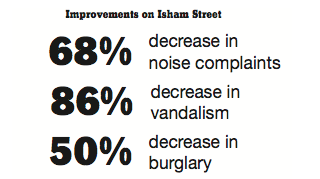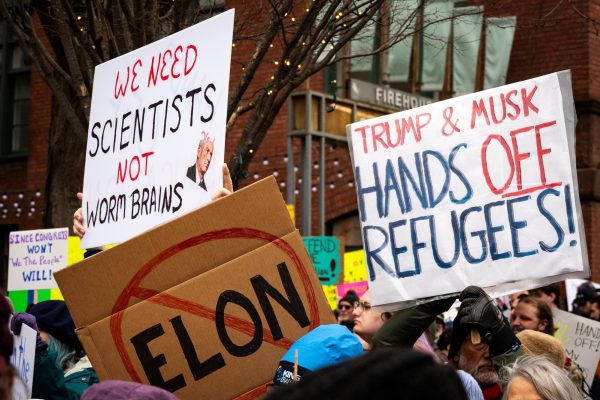Community programs decrease crime

Crime on some streets densely populated by UVM students has decreased over the past three years, a report from Burlington Police Department stated.
Students and other members of the University have aided in decreased crime by working with community members living on some streets to create programs that bring students and their non-student neighbors together, said Gail Shampnois, director of office of student and community relations.
“Before the garden, I used to talk to my student neighbors about noise, trash, and blocking my driveway,” said Helen Dechtiar, a resident of Buell Street resident. “Now, I talk to them about how to grow a good tomato.”
Senior Tate Pasquini, a former Isham Street resident, said when he moved there in 2013, community relationships were suffering, and there were many issues on the street.
“College kids, including myself, had little respect for things such as being mindful of neighbors and thinking about the environment when passing through,” Pasquini said. “The trash was a real problem on the street.”
Eight years ago with two non-student residents of Isham Street, Phil Hammerslough and Bryan Cina, who co-founded Isham Street Gardening & Other Optimistic Doings also known as ISGOOD.
ISGOOD works with student and non-student residents on Isham Street to plant community gardens and assist with annual street clean ups, Hammerslough said.
“As a result of ISGOOD’s activities, the street is a more sociable place and a more livable community,” he said.
Shampnois said damaged porch railing to demonstrate how programming has improved communication between neighbors.
“While non-student residents may have previously assumed it occurred during a party, residents were instead inclined to speak to their student neighbors and realized that the damage occurred during a bike theft,” said Shampnois.
Several other campuses have reached out to OSCR about the programs due to their success, Shampnois said.
Deputy Police Chief Tim Bilodeau stated that police also play a role in keeping these communities safe and friendly.
“Police enforcement is one small component of what allows these neighborhoods to thrive in ways that are much more healthy than disruptive,” he stated in a Feb. 8 email.
SGA is very aware of the differences that both the programs and UVM police have been making, SGA president Jason Maulucci said.
There was a stigma surrounding the behavior of students because neither students nor non-student residents knew each other personally, said senior Heather Scott, chair of SGA’s committee on legislative and community affairs.
As crime rates decrease as a result of these programs, the negative image that Burlington community members have of UVM will improve. It is important that non-student residents realize that UVM is Burlington’s biggest asset, not a liability, SGA President Jason Maulucci said.









